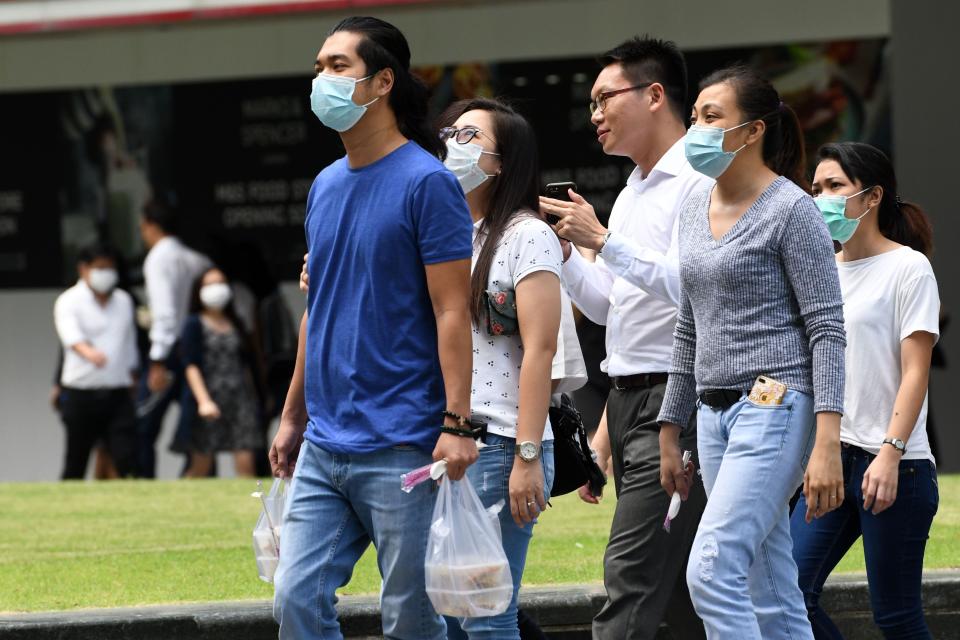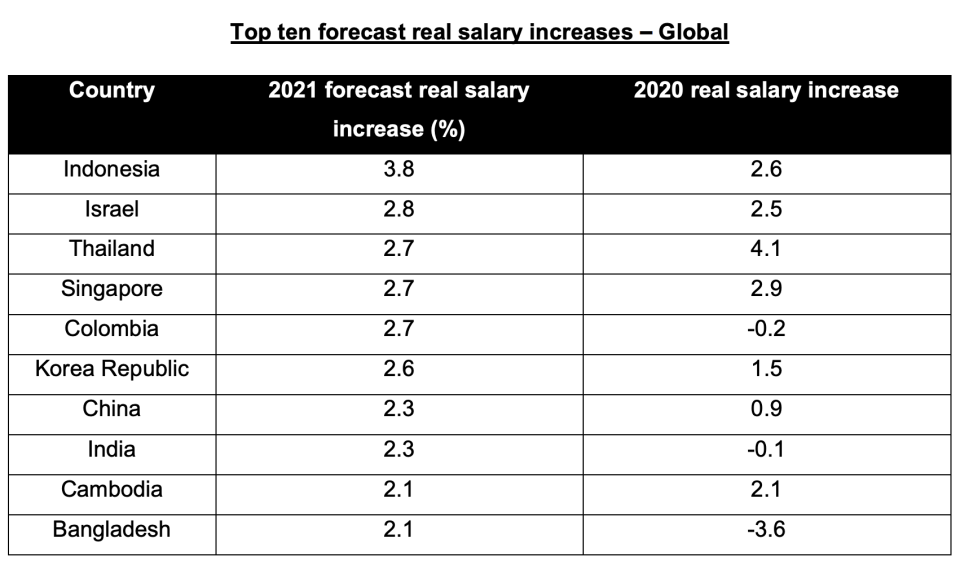Salary increases in Singapore expected to be among highest globally in 2021: survey

SINGAPORE — The average real salary increase for workers in Singapore is forecast to be 2.7 per cent in 2021 after factoring in a predicted inflation rate of 0.3 per cent, according to a survey.
While the salary estimate is slightly down from a 2.9 per cent real salary increase for this year, it is one of the highest in the world, ECA International said in statement on Thursday (19 November)..
“Singapore is expected to be the third highest in the global rankings for real salary increases on par with Thailand and Colombia, and second highest in the Asia-Pacific on par with Thailand, despite the lower forecasted increase in 2021 compared to what workers saw this year,” said Lee Quane, regional director for Asia at ECA.
Singapore has experienced consistently low inflation in recent years, and this will thus result in higher real salary increases for workers in Singapore, as compared to countries with higher inflation rates such as Hong Kong.
The expected rise in salaries next year is largely due to fewer companies implementing salary freezes, with only 22 per cent of those surveyed saying they will continue to freeze salaries into 2021, as compared with 36 per cent this year, Quane added.

Asia highlights
All locations in Asia-Pacific saw lower rates of salary growth in 2020, with an average salary increase of 3.2 per cent. However, companies anticipate a recovery next year, with the average salary increase in the region forecast to jump to 4.3 per cent.
In terms of real salary increases, countries in region once again dominate, with Asia Pacific economies accounting for eight of the top ten highest real salary increases in the global rankings.
Indonesia tops the global list, with its workers forecast to receive an increase of 3.8 per cent, higher than that for Israel, Singapore and Thailand.
“Our data shows that although 42 per cent of the companies surveyed in Indonesia implemented a salary freeze this year, only 24% of these will do so in 2021 – contributing to the rise in average salary increases in the country,” Quane said.
China’s economy seems to have weathered the impact of the COVID-19 pandemic better than many other locations in the region, and this is reflected in the extent to which salaries are forecast to grow again in 2021.
Workers in China can expect to receive a 5 per cent salary increase on average next year, up from 3.8 per cent this year.
In Hong Kong, real salary increase will be low, coming in at 0.6 per cent after taking the forecast inflation of 2.4 per cent for 2021 into consideration.
The survey is based on information collected from over 370 multinational companies in 68 economies from August to September this year.
Related stories:
DBS to allow employees to work remotely for up to 40% of time
Singapore expat jobs under threat in recession, local hire push
COVID-19: Singapore's Jobs Support Scheme to be extended up to 7 months – Heng Swee Keat

 Yahoo Finance
Yahoo Finance 
